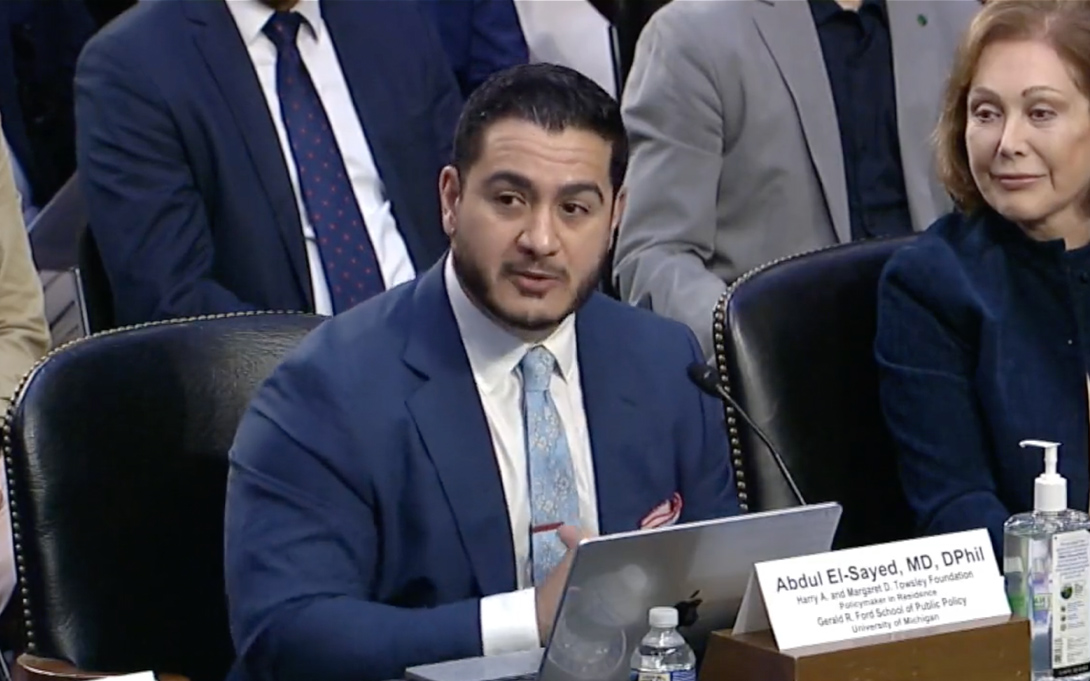
On May 12, Abdul El-Sayed, the Harry A. and Margaret D. Towsley Foundation Policymaker in Residence, testified before the U.S. Senate Budget Committee hearing titled “Medicare for All: Protecting Health, Saving Lives, Saving Money.” El-Sayed was joined by five other experts, introduced by Chairman Sen. Bernie Sander (I-VT).
In his written testimony, El-Sayed spoke on two main challenges in the U.S. healthcare system: Insurance coverage and the cost of health care.
El-Sayed argued that market-based health care has failed, writing, “It’s assumed I’ll pay whatever it costs considering I only have one heart that is priceless to me, a perfect example of what economists call ‘inelastic demand’; my demand for care does not change based on price.”
He also described inequities in the system. “Because Americans of color are substantially more likely to be insured on Medicaid than their white counterparts, our tiered healthcare system is just another means by which our healthcare system assents to fundamental health inequities,” he wrote. “Empirically, our system literally values Black bodies less than it does white ones.”
Beyond coverage and costs, El-Sayed described the effects of the pandemic on the health care system. These include a hospital staffing crisis, lost employer-sponsored health insurance coverage, and reduction in services leaving fewer choices for care. He testified on the benefits of Medicare for All as a potential solution.
Additional highlights
Responding to a question from Sen. Padilla (D-CA) about how Medicare for All helps those suffering from mental illness and substance abuse disorder, El-Sayed said, “One of the best pieces of Medicare for All, is that it reminds us that making Medicare whole is really the first step to extending Medicare for everybody covering these critical needs…because we have such a different system for mental health, we systematically lag in terms of capacity.”
You can watch and download El-Sayed’s written testimony here.